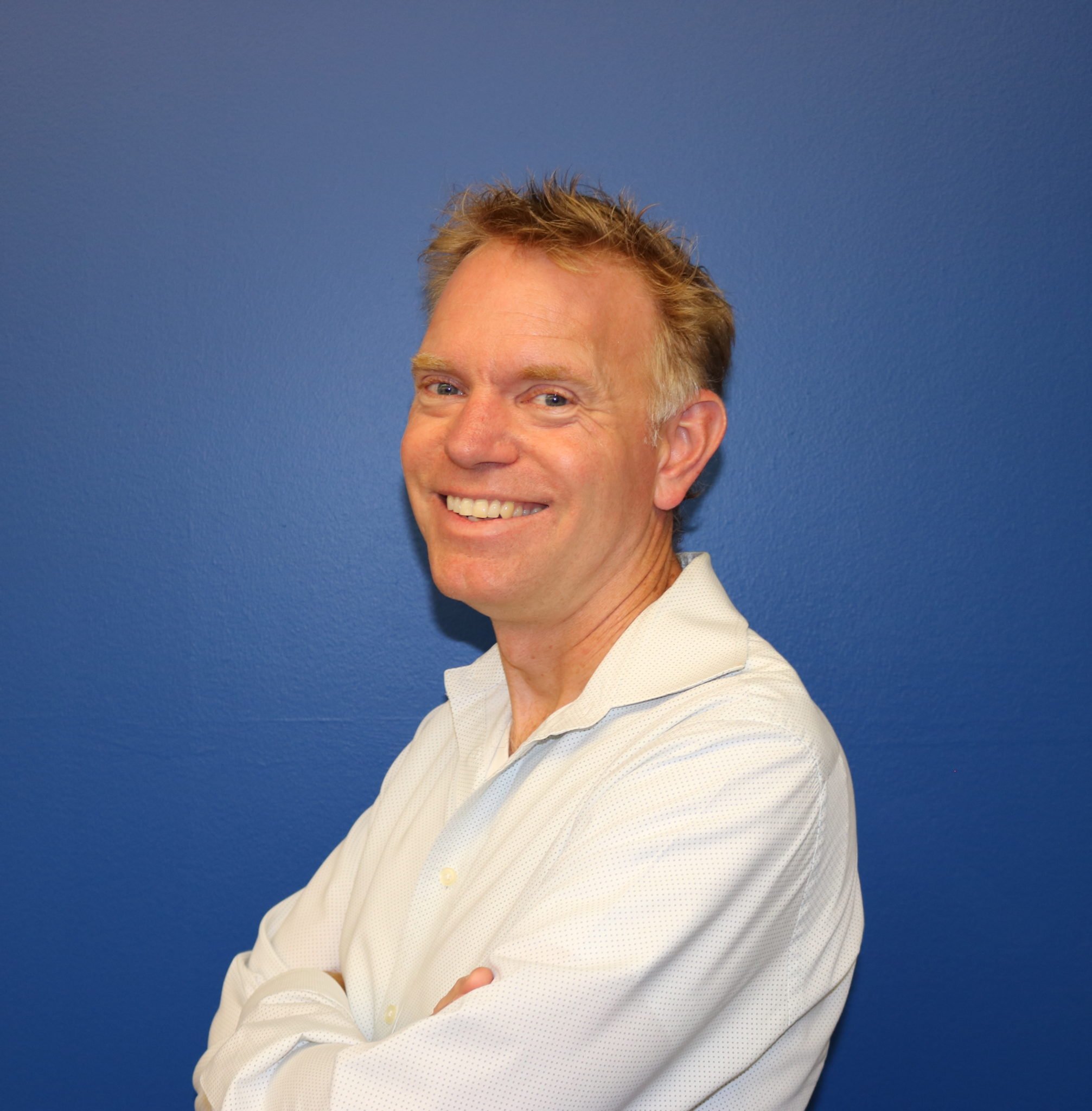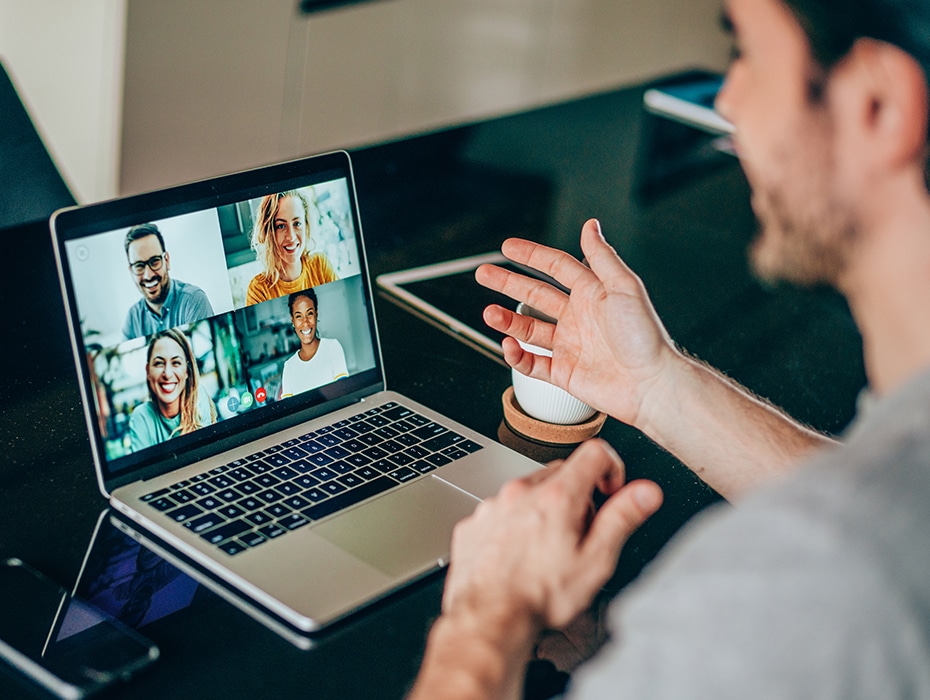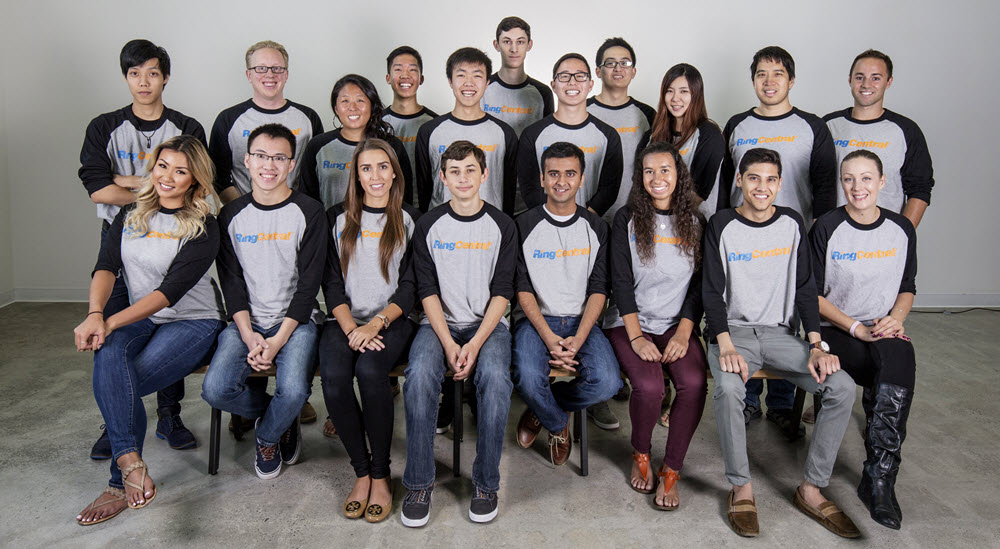Highlights:
- “Allyship” is about ensuring justice, equality, accessibility, and a sense of belonging for everyone.
- An “active bystander” works to create a culture that rejects harmful and discriminatory behavior.
- RingCentral’s SaaSY Women’s Group is a mix of wonderful women and male allies.
RingCentral’s SaaSY Women would rather talk business than talk about the issues of women in business, but the reality is, it’s tough to separate one from the other. To that end, the group makes diversity an organizing principle, working to create an environment where “everyone (is) comfortable bringing their best and authentic selves to work,” and “striv(ing) to build an environment where everyone is thriving at RingCentral.”
But here’s something you might not know about SaaSy Women’s group – it’s not made up solely of women. A number of male allies participate in the group’s discussions regularly, and recently sat down to share their perspectives.
Beyond good intentions
So, what, exactly, is an “ally?” According to the Harvard Business Review, allyship is “a strategic mechanism used by individuals to become collaborators, accomplices, and co-conspirators who fight injustice and promote equity in the workplace through supportive personal relationships and public acts of sponsorship and advocacy.”
OK, but how, exactly, does that work? For Vice President of Professional Services Danny Gunter, it means taking an active role in building the culture we want to see.
“It’s about building an inclusive culture, and being very proactive in building that culture. Being an active mentor, embracing diversity, standing up for what’s right. When you notice something that’s not right, in a situation, speak up, be bold. To me, that’s, that’s being an ally. And why is this important? Diversity is important. Diversity builds more effective teams. It allows for better individual development for us as humans, both personally and professionally.”
For Ignite Specialist, Partner Programs Stephanie Strahl, that’s exactly the kind of thinking RingCentral (and other companies) need to see more of.
“We need (male allies) who don’t just say they support women, or say they’re feminists…but men who actually show up and prove this with their actions, who let women’s voices be heard and help them be heard.”
Apathy to awareness
The continuing journey to allyship is typically described in three stages: apathy, awareness, and advocacy. According to Director of SMB Competitive Intelligence Ben Wunderman, moving from apathy to awareness can be tricky.
“It’s very easy, in my view, to go through life as a man or as someone who’s identified as one without necessarily understanding women’s experience on an individual level or on a relational level. I think part of that process is reflecting on your own biases and privileges, and then unpacking some of that and saying, ‘Where am I biased in my own attitudes, and my own behaviors, and what are women sharing and telling me and the community of men around the world that we need to improve on and we need to change or need to adjust?’”
Awareness to advocacy
Wunderman goes on to point out how easy it is to be aware of women’s issues in the workplace…and not do much about it. And that’s the SaaSy Women (and their allies) are out to solve.
“It’s very easy. I also think to have these kinds of viewpoints internally, and then not not talk about them. But that’s where the rubber meets the road, so to speak, when it comes to addressing privilege and power in a male space or with other men. So for me, that’s the core of moving from apathetic to aware—addressing and listening to those challenges, reflecting on them, and then moving into that stage of talking to other folks about those issues, too.”
Deployment Specialist Ivan Jones thinks advocacy can often mean stepping up on issues everyone “feels bad” about, but no one’s actually addressing.
“For me, allyship is about caring enough to be courageous, and having the courage to do the right thing when no one else is willing to. It has to come from a place that’s humble and authentic, not grandstanding. It’s about active listening and humility. When you come to an issue that way, you’re better able to share openly, and ultimately be willing to start right where you are as an ally. You may not feel “qualified,” but allyship isn’t about having to match anyone else. It’s about being who you are, and starting. You may not be comfortable, but that’s where the courage is needed.”
Getting comfortable with discomfort
“In my experience, no one’s asking you to be the poster child for feminism,” says Professional Services Client Partner Jake Baker.
“Activation is about really being there, and being open. About making a conscious decision to actively listen and allowing yourself to be vulnerable enough to hear things that are, frankly, going to make you uncomfortable. These are systematic situations where, as a white man, we’re not used to finding ourselves. And that’s uncomfortable. Learning to let yourself be that vulnerable is hard, but it’s incredible how much of a difference that makes. It’s how you find out what you don’t know, then make a decision to change it. When you take on another person’s perspective, you discover a willingness to move forward and change things. It’s not easy to get there, but that’s the experience I’ve had moving from awareness into activation.”
Sometimes “uncomfortable” gets really uncomfortable. For Mid-Market Expansion Sales Team Leader Courtney Graviett, painful as past experience may be, it can also be put to work for good.
“Yes, I was a victim of harassment, but I am not a “victim” at all. I want to use my voice and resources to help other women—and men understand what it’s like to be in a more equal workforce.”
Expanding horizons
Allies shift the focus from their perspective to another’s. And that can help lift an entire culture. It’s difficult, humbling work. But it’s essential to building a truly inclusive culture. And it can also benefit the bottom line.
“When I think about this company, I think about respecting and protecting the RingCentral brand,” says Jones.
“Being a part of the SaaSy Women’s group, and being an ally, allows me to provide a better customer experience. I’m better equipped to serve. I’m better able to listen and connect people with other people. And so much of that I attribute to this journey, because I’ve been in those spaces where I was uncomfortable, and they’re not so scary anymore. That makes me better able to service my customers – I feel like I’m better equipped, both internally and externally. I’m so grateful for that.”
Expanding one’s worldview to include others’ is a big step. People go their entire lives without realizing a viewpoint other than their own even exists. Really listening and internalizing others’ experience is an even bigger step. Turning that information into action…that’s massive. And that’s what allyship is—the realization that together, we can be amazing. It’s what we demand of ourselves, our culture and our company. It’s what we dream of for the world.
#HelloToRingCentral
Originally published Aug 13, 2021, updated Sep 23, 2021





